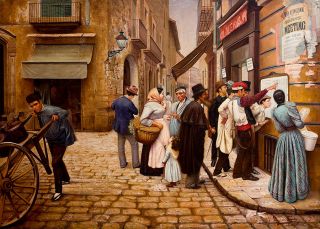Compulsive Behaviors
Risks of Gambling Optimism
A gambler who follows emotional optimism is hanging on to the wheel of fortune.
Posted December 18, 2023 Reviewed by Michelle Quirk
Key points
- The rise and fall of gamblers is the story of overconfidence in emotional luck.
- Throughout history, luck has been believed to be a telekinetic spirit protecting the body against misfortune.
- Having luck is beyond anyone’s control.

Optimism is a wonderfully hopeful belief attitude. But it sometimes has limitations that can turn the attitude negatively. Many years ago, my wife entered my name in a Pillsbury Company promotional sweepstakes celebrating the grand opening of a local supermarket. Winning the first prize of $20,000 had a 1.4 million-to-one chance. For many years before, I had been advising my family and students about the futility of betting on sweepstakes and lotteries. But this Pillsbury prize was different; it bore no expense. All that was required was a short time in filling out a submission form.
The Gambler-Illusion Trap
On winning, I felt a strange but expected optimism that compelled me to try my luck with lotteries; after all, with my new emotional euphoria, I had house money to invest. And, so, I bought my first ticket, partly understanding that I might fall into the gambler-illusion trap that I knew so much about.
That trap brought me to a gas station convenience store to buy my one-and-only lottery ticket. A man ahead of me who drove into the parking lot in his muffler-broken rusty pickup counted out $100 to buy his hopeful Tri-State Megabucks tickets. I bought my ticket, just one, and stepped aside to watch others from a distance frantically buying. It was midnight, the pot was up to $2.4 million, and no one there looked as if they could afford fleeting moments of entertainment at the costly rate they were paying at the counter. I left and never bought another.
Throughout history, luck has been believed to be not only some desirable thing to be possessed to win at gambling but also some telekinetic spirit protecting the body against misfortune. When you have it, it will possess you, and when it does, you will think it is yours for a short time or forever. Many people rise and fall under the gambit of luck. It should tell them when risk is low or high. But do they listen?
The Rise and Fall on Betting From Optimism
.jpg?itok=7kkq8YU2)
Having luck is beyond anyone’s control. Take the rabbit’s foot, crossed fingers, or the path of a black cat. Superstitions give one the impression that there is something out there in the world, an emotional possession, a supernatural essence like a messenger RNA in the gut that has some external wave powers that can manipulate happenings beyond the mathematical laws of chance. Luck is a good thing. By believing in its possession, it can be beneficial. Its placebo effect is sometimes responsible for ailment cures that the strengths of illnesses could otherwise overpower. But, in the end, that powerful illusion of luck comes down to something that can be explicitly explained by rules of probability.
So, we come to the question: What makes some gamblers feel lucky without paying attention to the odds against them? Metaphorically and sometimes literally, it is some combination of greed, mysterious wishful thinking, overindulging optimism, and diabolical whispers in the ears of gamblers at casinos that make people accept bets with negative prospects. Feeling lucky, whether it’s an emotion or inspirational belief, gives one confidence in going forward in a venture, but it also implies knowing the risks of advancing with assurance, of which there is mathematically almost none.
Without knowing the truth of risks, the gambler who follows emotional optimism is hanging on to the wheel of fortune with dependence on its continuous inevitable rise and fall. But that's OK, as long as that entertainment gambler can afford the inescapable fall that doesn't reach bottom.
References
Joseph Mazur, What’s Luck Got to Do with It? The History of Mathematics and Psychology of The Gambler’s Illusion, (Princeton New Jersey: Princeton University Press, 2010), 210.


